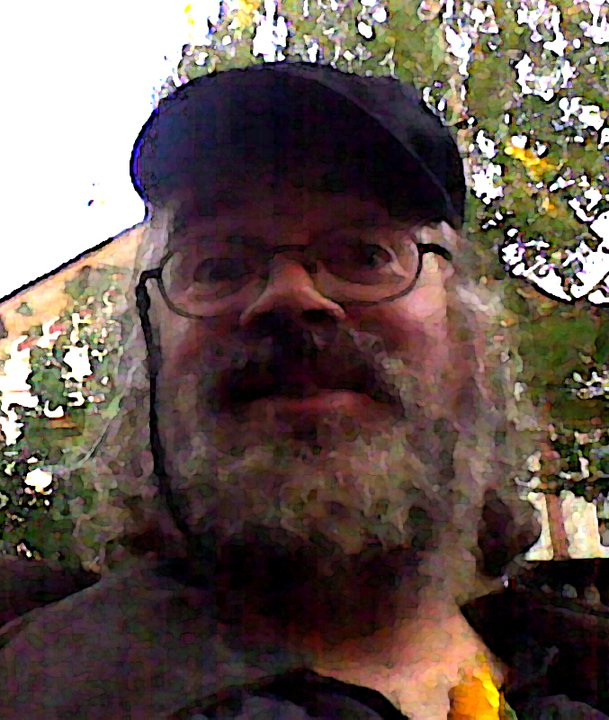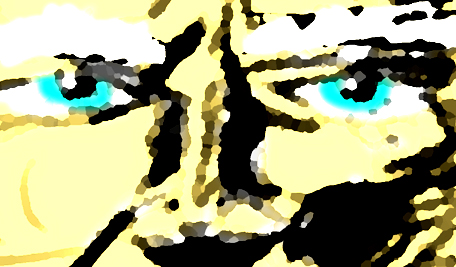| « A Trumpet Player in Kathmandu (Hide and Seek, Part 2 of 4) | Wrapping Up at Wanee » |
A Trumpet Player in Kathmandu (Part 1 of 4)
Kathmandu lies in a valley in the Himalayas. From the city, you can see Everest and K2 in the distance, the Monkey Temple in the foothills. But I had not come for the hiking and had not left the city. I thought I had come to find myself, but I had come to hide from myself, because life is intolerable for a twenty-five year old with no direction.
Click through for more Monday Morning
Musical Musings with Paul Bourgeois
In 1989 the King of Nepal was a rich bastard and bribery was the way to negotiate the system. In Kathmandu, you could be anyone, go anywhere, if you knew where to look. Kathmandu was a place where a person went to get lost, a transit point from one place to another, and often people never left. Someone once told me that it was easy enough to stay in Kathmandu with an illegal visa; the trick was leaving. The hippies had come in the sixties and they had stayed.
In summer the heat at night was unbearable, and I stayed in a tiny room with plywood walls and peeling paper and a plank for a bed in a place called Freak Street, so there was no sleep for me. Freak Street was littered with signs left over from the sixties, like Mary Madelene Marijuana, and it was full of enterprising young men wanting to change money and make sure you had fun in Kathmandu. There is a tourist prison in Kathmandu. You could go, hand people news and food through the bars. More people who would never leave the country. I had never been to visit the prison.
So Freak Street was no place to find yourself at night. And since I could not sleep, with no money and my visa running out, I toured the tourist clubs and cafes in the rich part of town at night to escape the heat.
One night I filled myself up with the white lightning called roxy in Freak Street and I started wandering aimlessly. I found myself at a rich five-star hotel. This was a self-contained glass class enclosed complex complete with shopping, restaurants and nightlife. I had not washed. Dirty trousers and a ragged t-shirt, thin starved look, I smelled of momos, roxy and the urine soaked alleys. I waited casually near the door until a well to do Indian businessman and his wife – he in a traditional tailored impeccably white kurta and pajama and she in an expensive silk sari and jewelery – entered, and I slipped quickly past them. The air conditioning hit me like a wall, a glorious rush of cool. The traveler could come to Kathmandu, stay in this hotel, and need never see the city. But Freak Street was sneaking in tonight. I made my way to the bar upstairs.
It had the feel of an airport waiting lounge. Wall panel windows looked down on the squalid city below: lamps, flames and electric lights, a mix of Nepali, Hindi and English sprawling chaotically amidst the darkness. There was a smattering of businessmen scattered about, sipping malt wiskeys and imported brandies. Probably all laid over for a day or two in this nowhere place, waiting to catch a plane elsewhere. A couple of rich American teenage girls, all wide eyed and impressed on their daddy’s money, huddled together and watched the show of people.
I went to the counter and ordered the local fare. The bartender gave me a look but I put my money down and he passed me my beer. I went and sat in the corner. Three musicians were setting up on stage, two locals, one testing the keys on a rickety old piano and the other setting up a contrabass. The third was Western, but he moved like a local.
About 60, skin tight and bleached like fine bone, hard eyes under white bushy eyebrows, his white hair pulled back into a tight ponytail, he moved between the other two musicians, a trumpet hanging from his right hand like part of him, brass glinting and gleaming as he moved. But there was something not quite settled, not quite right about him. If anything, it was his black suit that looked out of place. His body wanted something loose fitting and flamboyant. The trumpet player suddenly looked at me with his hard eyes. I felt the chill of the air conditioning. And then he turned back to the band.
Pretending to drink my beer I let the white lightning seep slowly into my bloodstream. Police were dressed like paramilitary and carried clubs and semi automatics but they rarely entered the hotels for fear of scaring the tourists. My eyes started to close. I never noticed the band begin to play.
Melancholy drifted in and out of me. A quiet sadness with hope somehow somewhere. My eyes focused from my blurry corner. There was some commotion. The entire room was moving away from me. The bartender spoke with a couple police at the door. From the stage the trumpet player waved his hand in broad strokes, shaking his head, pushing the police back out. Hand on his chest, he indicated I belonged to him. And he didn’t miss a beat musically. The police moved back out. How could such a man exist, to play so well in a place like this. A Miles Davis, a John Coltrane, and nobody knew except the people in this little club, and he was playing just for me.
The evening ended. The band dispersed and people began to wander home. The trumpet player ordered something clear, pulled himself close to me, downed the shot and studied me. He laughed.
“You’re f*cked, Boy.”
“What is a fantastic musician like yourself doing in a place like this.”
“The name’s Joe Townsend. Pleased to meet you, too.”
“I mean you could be great. Famous. And you’re here.”
“You can’t take a hint, can you? Where are you staying?”
“Freak Street.”
“Kumar, take him to his hotel.” Some hands lifted me. I stumbled out the door.
“What is a trumpet player like him doing in Kathmandu?” I said to a dark mustached face hovering next to me. It said something about no statute of limitations but I wasn’t really paying attention.



